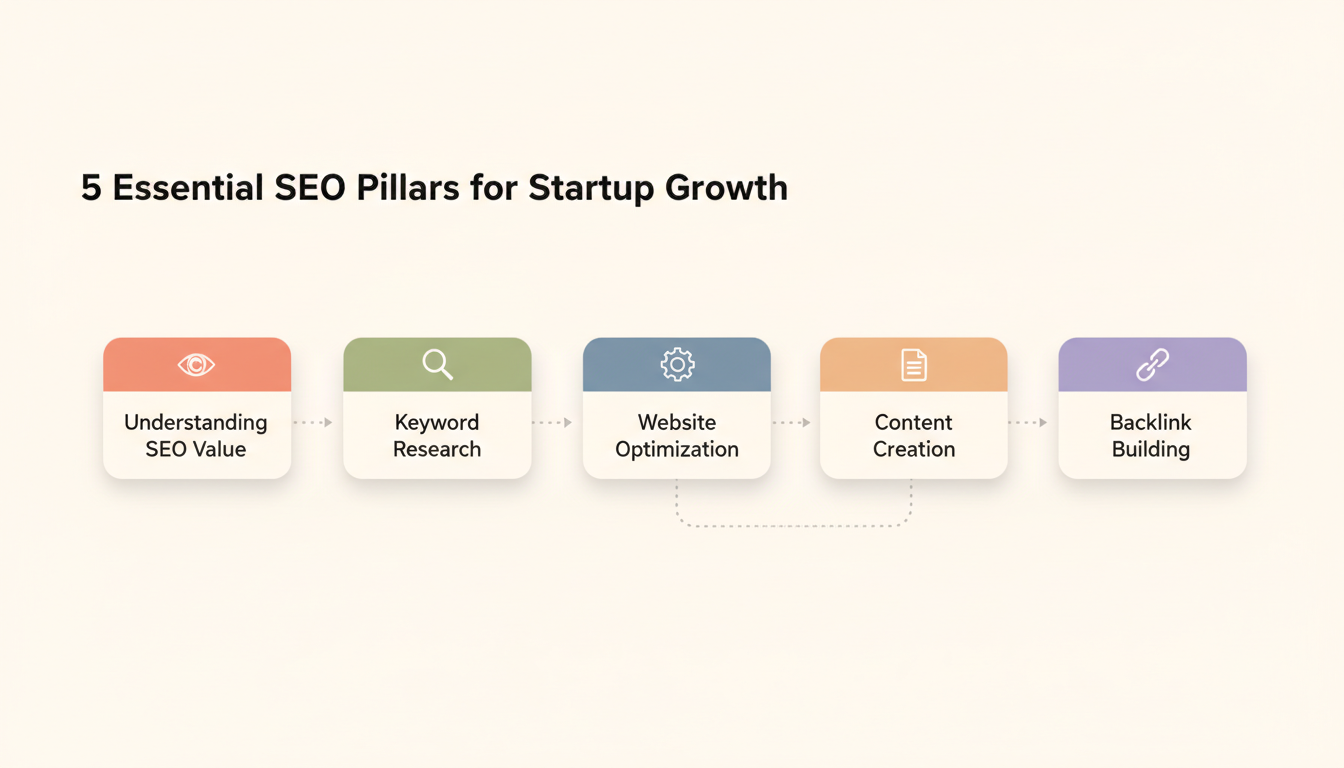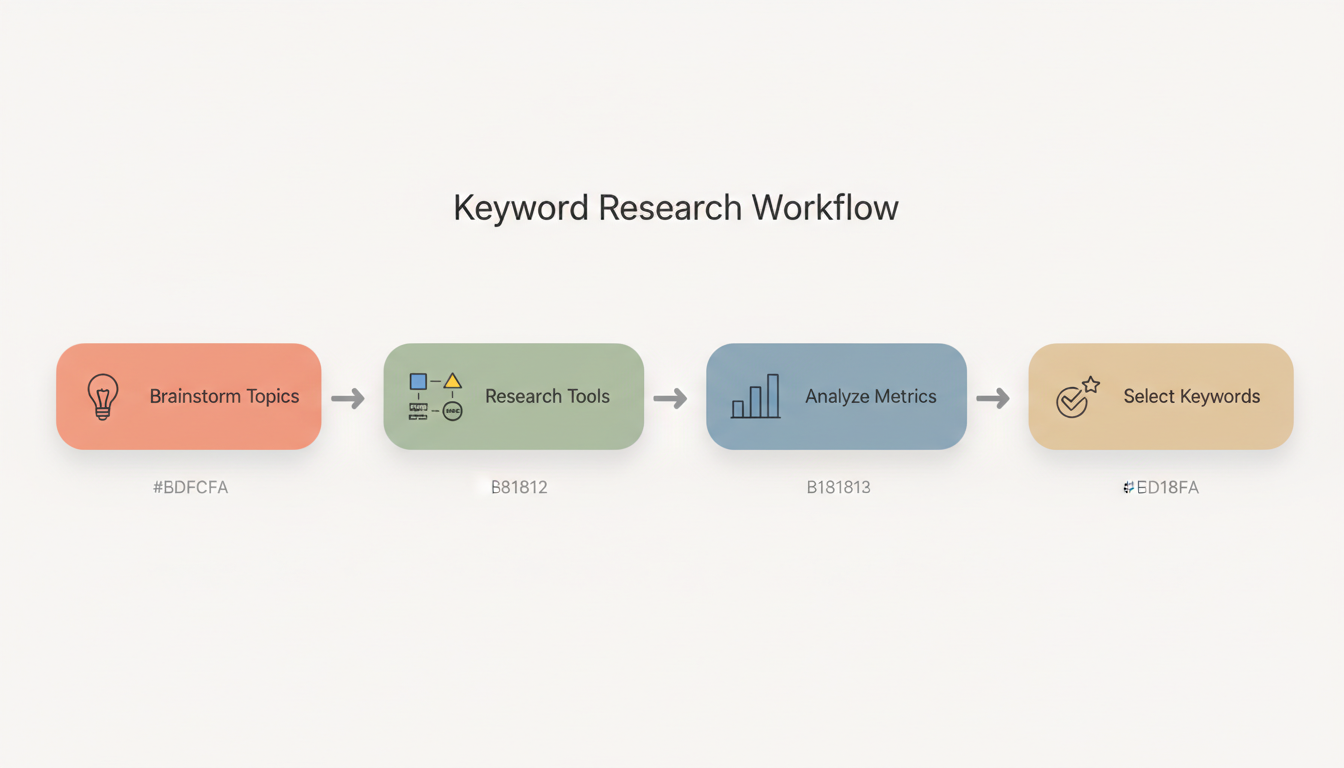In today's highly competitive digital landscape, it is essential for startups to implement effective SEO strategies to achieve rapid growth. Search engine optimization (SEO) plays a crucial role in ensuring that your website ranks high on search engine result pages (SERPs), driving organic traffic and increasing brand visibility. By understanding the importance of SEO and implementing the right techniques, startups can gain a competitive edge and accelerate their growth.

SEO is a vital component of digital marketing for startups. By optimizing your website and content for search engines, you can enhance your online presence, attract targeted traffic, and generate leads. Startups need to recognize the role of SEO in digital marketing and leverage its potential to establish credibility, create brand awareness, and drive sustainable growth.
When it comes to digital marketing, SEO plays a crucial role in ensuring that your startup's website is visible to potential customers. By implementing effective SEO strategies, you can improve your website's ranking on search engine result pages (SERPs), making it easier for users to find you. This increased visibility not only drives more organic traffic to your site but also helps build trust and credibility among your target audience.
SEO encompasses various strategies and techniques that help search engines understand your website's relevance and authority. By optimizing your website's structure, keywords, and content, you enable search engines to index your site and present it to users searching for related products or services. SEO works hand in hand with other digital marketing channels such as social media marketing, content marketing, and pay-per-click advertising to create a comprehensive online marketing strategy.
One of the primary roles of SEO is to ensure that your website is easily navigable for both search engines and users. By organizing your site's structure and implementing proper internal linking, you make it easier for search engine crawlers to index your pages. Additionally, a well-structured website enhances user experience, allowing visitors to find the information they need quickly and efficiently.
Keyword optimization is another crucial aspect of SEO. By conducting thorough keyword research and incorporating relevant keywords into your website's content, you increase the chances of ranking higher on SERPs. However, it's important to strike a balance between keyword optimization and providing valuable, engaging content to your audience. Search engines value quality content that meets the needs of users, so focusing solely on keywords without considering the user experience may lead to a negative impact on your rankings.
Startups, in particular, cannot afford to overlook the importance of SEO. With limited budgets and resources, startups often rely on organic traffic to gain visibility and acquire customers. By investing in SEO from the early stages, startups can compete with established players and reach their target audience effectively. Ignoring SEO puts startups at a significant disadvantage, as they might struggle to rank high on search engine result pages, hindering their growth potential.
Furthermore, SEO provides startups with a cost-effective marketing strategy. While paid advertising can yield immediate results, it can also be expensive, especially for startups with limited funds. On the other hand, SEO allows startups to generate organic traffic and leads without the need for continuous financial investment. By consistently optimizing their website and producing high-quality content, startups can establish a strong online presence and attract potential customers without breaking the bank.
Another reason why startups cannot afford to ignore SEO is its long-term benefits. Unlike some other digital marketing tactics that may provide short-term results, SEO is a sustainable strategy that can continue to drive traffic and generate leads over time. By consistently optimizing their website and staying up-to-date with industry trends, startups can maintain their online visibility and stay ahead of the competition.
In conclusion, SEO plays a vital role in the success of startups in the digital landscape. By understanding the importance of SEO and implementing effective strategies, startups can enhance their online presence, attract targeted traffic, and generate valuable leads. Investing in SEO from the early stages is crucial for startups to establish credibility, create brand awareness, and drive sustainable growth in a competitive market.
Keywords are the foundation of any successful SEO strategy. Proper keyword research allows you to identify the terms and phrases that your target audience is searching for, enabling you to optimize your website and content accordingly.
When it comes to keyword research, there are several important factors to consider. One of the key aspects is finding relevant keywords with sufficient search volume and low competition. This ensures that you are targeting keywords that are not only popular among your audience but also have a good chance of ranking well in search engine results.
Effective keyword research involves more than just brainstorming a few keywords related to your business and industry. While this is a good starting point, it's important to dive deeper and explore a wider range of keywords that your target audience may be using.
One way to expand your keyword list is by using keyword research tools. These tools provide valuable insights into search volume, competition, and trends associated with specific keywords. One popular tool is the Google Keyword Planner, which allows you to enter a keyword and get information on its average monthly search volume, competition level, and suggested bid for advertising.
In addition to the Google Keyword Planner, there are other powerful keyword research tools available. SEMrush, for example, provides comprehensive data on keyword difficulty, related keywords, and even the organic search positions of your competitors. Moz Keyword Explorer is another useful tool that offers insights into keyword difficulty, search volume, and potential click-through rates.
For startups and businesses looking to conduct thorough keyword research, there are several tools available that can assist in gathering valuable data and analytics.
SEMrush is a popular choice among marketers and SEO professionals. It not only helps you refine your keyword list but also provides detailed information on search volume, keyword difficulty, and even the top-ranking pages for specific keywords. This allows you to gain a better understanding of your competition and identify opportunities to outrank them.
Ahrefs is another powerful tool that offers a wide range of features for keyword research. With Ahrefs, you can explore keyword ideas, analyze search volume and difficulty, and even track your keyword rankings over time. This tool also provides insights into the backlink profiles of top-ranking pages, allowing you to identify potential link-building opportunities.
Moz, a well-known name in the SEO industry, offers Moz Keyword Explorer as part of its suite of SEO tools. This tool provides valuable data on search volume, keyword difficulty, and organic click-through rates. It also offers suggestions for related keywords, helping you expand your keyword list and uncover new opportunities.
Lastly, Google Trends is a free tool provided by Google that allows you to explore the popularity of specific keywords over time. This can be particularly useful for identifying seasonal trends and understanding the overall interest in certain topics.
By utilizing these tools, startups and businesses can optimize their website and content for the right keywords, increasing their chances of ranking higher in search engine results. Effective keyword research is an ongoing process that requires continuous monitoring and adjustment, but when done right, it can significantly improve your online visibility and drive targeted traffic to your website.

Optimizing your website is crucial to improve its visibility and accessibility for search engines. By implementing on-page SEO elements, startups can enhance their website's performance and increase their chances of ranking higher on SERPs.
Meta tags provide search engines with valuable information about your web pages. Startups should optimize their meta titles and descriptions with relevant keywords and compelling copy to entice users to click on their search results. Additionally, using schema markup can provide additional context to search engines, improving your website's visibility in specific search results such as rich snippets or local business listings.
A well-structured URL is not only user-friendly but also improves your site's SEO. Startups should aim for concise URLs that include relevant keywords and categorize content logically. Avoid using dynamic or generic URLs, as they provide little value to search engines and users. By optimizing your URL structure, you make it easier for search engines to understand your website's organization and improve its crawlability.
High-quality, SEO-friendly content is crucial for startups looking to attract organic traffic and engage their target audience. By creating valuable and optimized content, startups can improve their chances of ranking higher on search engine result pages and positioning themselves as industry leaders.
Startups should focus on creating blog content that is not only informative but also optimized for relevant keywords. Conducting comprehensive keyword research enables you to identify topics and keywords that resonate with your target audience. Infuse your blog posts with these keywords naturally, ensuring that the content remains valuable and engaging for readers while increasing its visibility to search engines.
Consistently updating your website with fresh and valuable content is key to maintaining an active online presence. Startups should strive to create a content calendar and publish new articles, blog posts, or other relevant content regularly. Not only does this attract search engine bots to crawl your site more frequently, but it also shows visitors that your startup is actively providing up-to-date information, increasing credibility and user engagement.
Backlinks, or inbound links from reputable websites, play a significant role in determining your website's authority and visibility on search engines. Startups should focus on building high-quality backlinks to improve their search rankings and establish credibility in their industry.
Backlinks act as votes of confidence from other websites, signaling to search engines that your content is valuable and trustworthy. Startups should aim to earn backlinks from authoritative sources within their industry. This can be achieved through guest blogging, influencer collaborations, or creating valuable content that naturally attracts backlinks. By cultivating a strong backlink profile, startups can enhance their SEO efforts and increase their chances of ranking higher on SERPs.
Startups can employ various strategies to earn high-quality backlinks. Networking with industry influencers and thought leaders can help build relationships that lead to valuable backlinks. Additionally, creating insightful and shareable content, such as infographics, guides, or case studies, can attract attention from relevant websites and generate organic backlinks. Startups should also monitor their backlink profile regularly, disavowing any low-quality or spammy links to ensure the integrity and effectiveness of their SEO efforts.
By implementing these five essential SEO strategies, startups can lay the foundation for rapid growth in today's digital era. Understanding the importance of SEO, conducting thorough keyword research, optimizing your website and content, and building quality backlinks are crucial steps towards achieving sustainable success. With a well-executed SEO strategy, startups can elevate their online presence, attract targeted traffic, and significantly increase their chances of growing rapidly in today's highly competitive market.
By submitting this form, you agree to our Privacy Policy and Terms & Conditions.